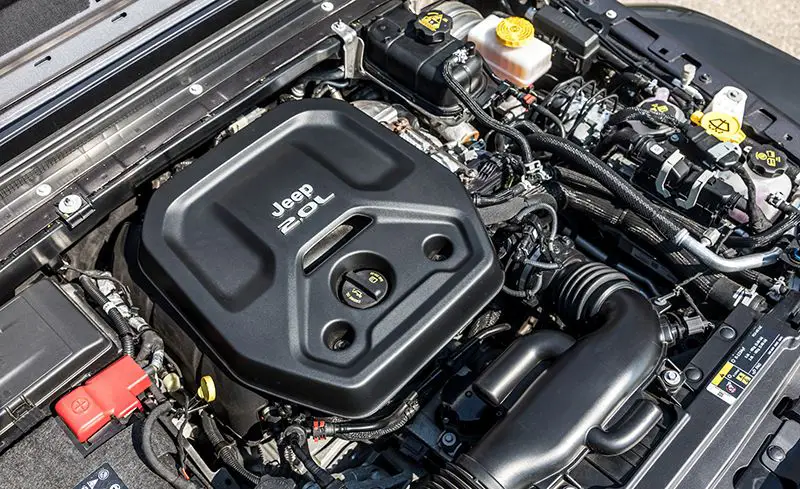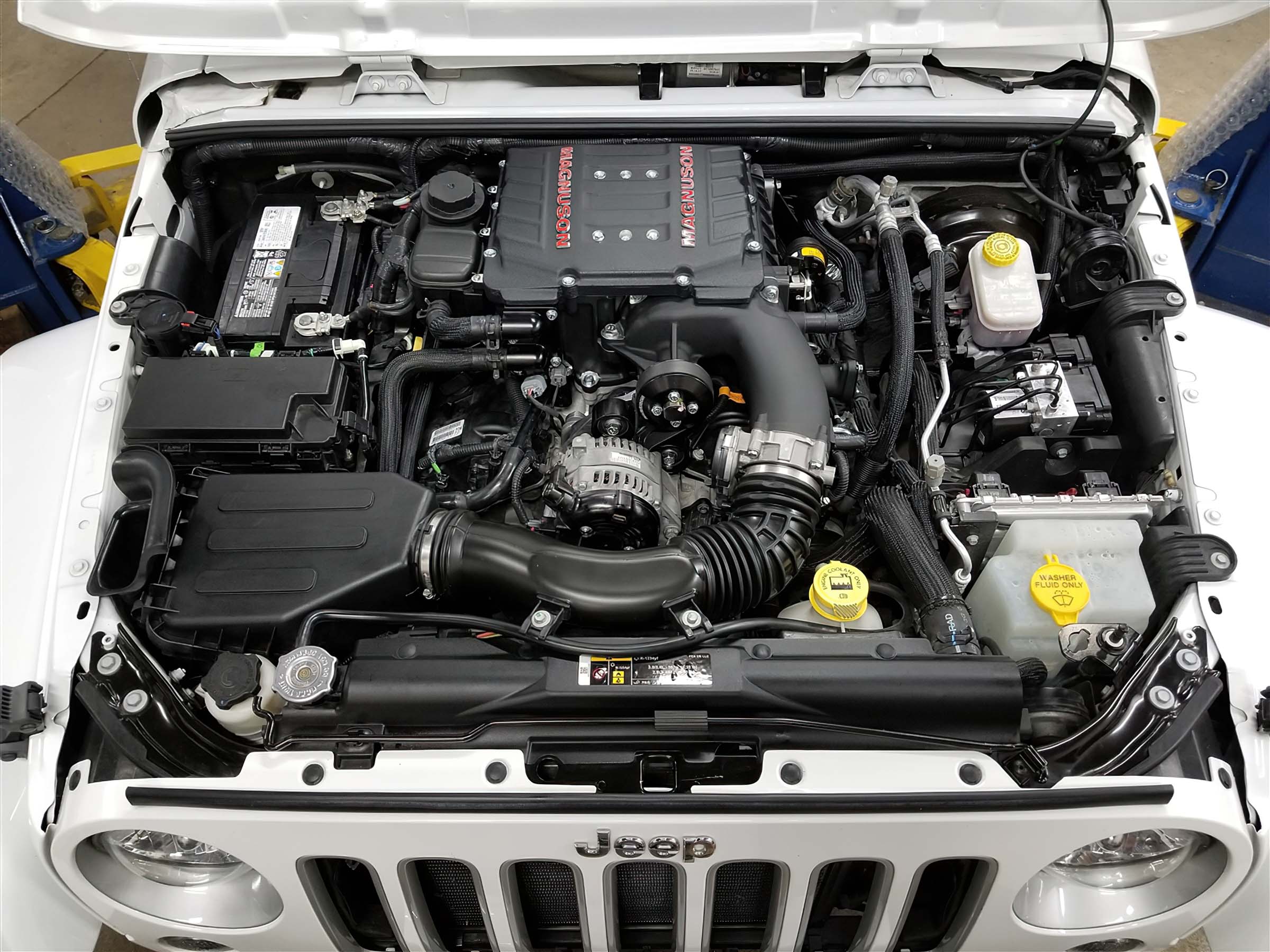The Jeep 2.0 and 3.6 engines have different characteristics that affect their performance and fuel efficiency. When it comes to choosing between the Jeep 2.0 and 3.6 engines, it's important to consider their unique features.
The 2. 0 engine offers better fuel efficiency and higher torque, making it a great choice for those prioritizing fuel economy and off-road capability. On the other hand, the 3. 6 engine delivers more power and is better suited for towing and hauling heavier loads.
Deciding between the two engines ultimately depends on your specific needs and preferences. Now, let's explore the key differences and benefits of each engine in more detail.

Performance Comparison
Performance Comparison:
When it comes to evaluating the performance of Jeep 3.6 vs 2.0, several key factors need to be considered. This section will delve into the horsepower and torque, fuel efficiency, and off-road capability of these two Jeep engine options. Understanding these performance differences can help you make an informed decision when choosing between the Jeep 3.6 and 2.0.
Horsepower And Torque:
Engine power is a primary consideration when comparing the performance of different vehicles. The Jeep 3.6 engine delivers an impressive A 285 horsepower and 260 lb-ft of torque. This engine option provides a great balance between power and efficiency, making it suitable for both on-road and off-road driving adventures. On the other hand, the Jeep 2.0 engine comes with a slightly lower horsepower, offering around 270 horsepower but compensates with higher torque, providing an impressive 295 lb-ft. This increased torque value enhances the overall performance and enhances the Jeep's capability to tackle challenging terrain.
Here is a quick summary of the horsepower and torque specifications for Jeep 3.6 vs 2.0:
| Horsepower | Torque | |
|---|---|---|
| Jeep 3.6 | 285 hp | 260 lb-ft |
| Jeep 2.0 | 270 hp | 295 lb-ft |
Fuel Efficiency:
While both the Jeep 3.6 and 2.0 engines offer commendable power, fuel efficiency is also a crucial consideration for many drivers. The Jeep 2.0 engine, thanks to its smaller displacement, offers notable fuel efficiency. This engine option delivers an EPA-estimated 23 mpg in city driving and 25 mpg on the highway. On the other hand, the larger Jeep 3.6 engine provides slightly lower fuel efficiency, with an EPA-estimated 17 mpg in the city and 25 mpg on the highway. If fuel efficiency is a top priority for you, the Jeep 2.0 engine may be the better choice.
Off-road Capability:
The Jeep 3.6 and 2.0 engines both offer exceptional off-road capabilities, making them popular choices among adventure seekers and outdoor enthusiasts. The Jeep 3.6 engine's well-rounded power and torque make it suitable for conquering challenging terrains, while the Jeep 2.0 engine's increased torque value enhances its off-road performance. Whether you are navigating rocky trails or crossing muddy terrain, both engines provide the power and capability to take on the most demanding off-road adventures.

Credit: magnusonsuperchargers.com
Pros And Cons
When it comes to choosing the right engine for your Jeep, two popular options are the Jeep 2.0 and 3.6 engines. Each engine has its own set of advantages and disadvantages, and understanding these can help you make an informed decision. In this section, we will explore the pros and cons of both engines, highlighting the key features and drawbacks of each.
Advantages Of Jeep 2.0 Engine
The Jeep 2.0 engine offers several advantages that make it an appealing choice for many drivers. Here are some of its key benefits:
- Efficiency: The 2.0 engine is known for its fuel efficiency, allowing you to save on gas costs without compromising on performance.
- Turbocharged Power: This engine comes with a turbocharger, providing enhanced power and acceleration on the road.
- Lightweight Design: The 2.0 engine is lighter than its 3.6 counterpart, which can contribute to improved handling and maneuverability.
- Low-End Torque: The 2.0 engine delivers impressive low-end torque, making it a great choice for off-road adventures and towing.
Advantages Of Jeep 3.6 Engine
The Jeep 3.6 engine also has its own set of advantages that are worth considering. Here are some key features that make it stand out:
- Powerful Performance: The 3.6 engine boasts a larger displacement and higher horsepower, providing a robust and exhilarating driving experience.
- Towing Capacity: With its increased power, the 3.6 engine offers a higher towing capacity, making it ideal for hauling heavy loads.
- Proven Reliability: This engine has been a staple in Jeep vehicles for years, and its proven reliability is a testament to its durability.
- Affordability: Compared to the 2.0 engine, the 3.6 engine is often more affordable, making it a budget-friendly option.
Disadvantages Of Jeep 2.0 Engine
While the Jeep 2.0 engine offers its fair share of benefits, it also comes with a few drawbacks to consider:
- Less Power: The 2.0 engine may not deliver the same level of power and performance as the larger 3.6 engine, which could be a drawback for some drivers.
- Higher Cost: In some cases, the 2.0 engine may come with a higher price tag compared to the 3.6 engine, impacting the overall cost of the vehicle.
Disadvantages Of Jeep 3.6 Engine
While the Jeep 3.6 engine is known for its power and reliability, there are a couple of downsides to consider:
- Lower Fuel Efficiency: Compared to the 2.0 engine, the 3.6 engine tends to have lower fuel efficiency, resulting in higher gas costs over time.
- Heavier Design: The 3.6 engine is heavier than the 2.0 engine, which may affect the vehicle's overall weight distribution and handling.
Ultimately, the decision between the Jeep 2.0 and 3.6 engines will depend on your specific needs and preferences. Consider factors such as fuel efficiency, power, towing capacity, and budget to determine which engine is the right fit for your Jeep.
Frequently Asked Questions For (Jeep 2.0 Vs 3.6)
Is A Jeep 2.0 Or 3.6 Better?
The better option between a Jeep 2. 0 and 3. 6 depends on your preferences and needs. The 2. 0 offers more fuel efficiency and a turbocharged engine, while the 3. 6 offers more power and towing capability. Choose based on what you prioritize in a vehicle.
Which Jeep Engine Is Most Reliable?
The 4. 0-liter inline-six engine is widely regarded as the most reliable engine in Jeep vehicles.
Does Jeep 2.0 Turbo Require Premium Fuel?
Yes, the Jeep 2.0 Turbo does require premium fuel for optimal performance.
Is The Jeep 3.6 Engine Any Good?
The Jeep 3. 6 engine is known for its performance and reliability. With its powerful capabilities, it is a reliable choice for off-road adventures and everyday driving.
Conclusion
Both the Jeep 2. 0 and 3. 6 have their strengths and weaknesses. The 2. 0 engine offers better fuel efficiency and turbocharged power, making it ideal for those seeking better mileage and a thrilling driving experience. On the other hand, the 3.
6 engine boasts more raw horsepower and is better suited for off-road adventures and towing heavy loads. Ultimately, the choice between the two depends on individual preferences and intended use. Choose wisely and enjoy the Jeep experience that suits your needs!

